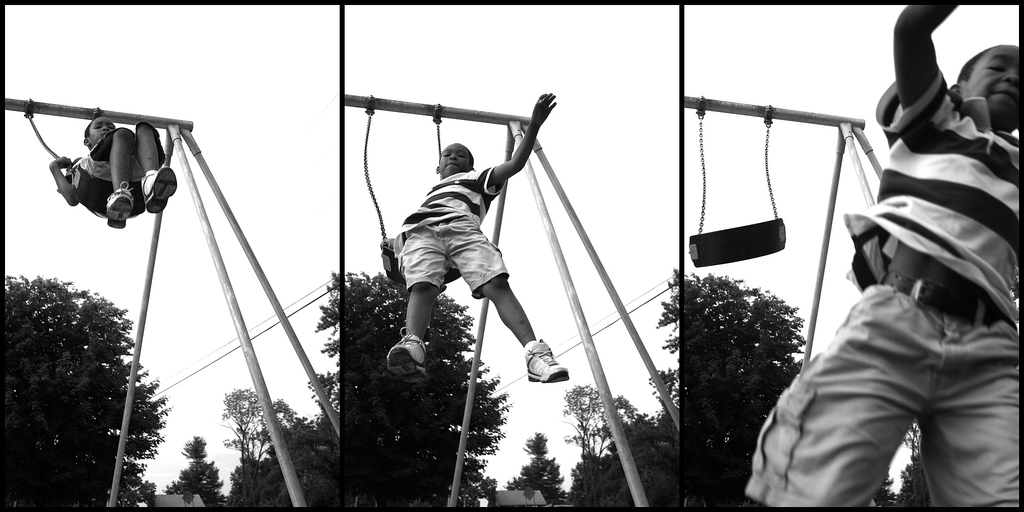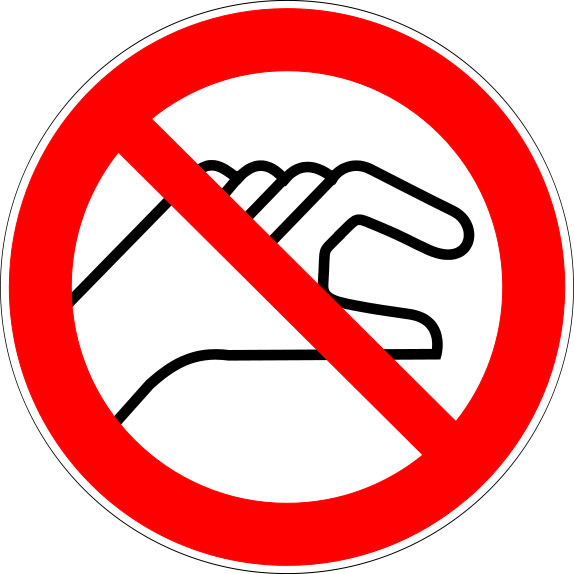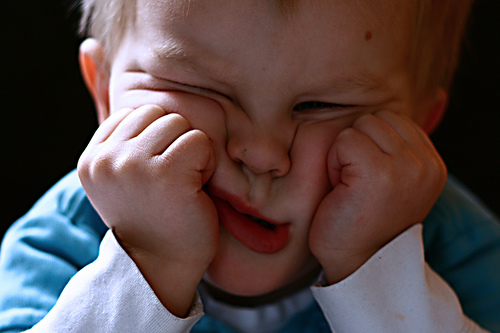A mom of an 8-year-old asked us this…
“I don't know what the deal is lately, but I feel like I'm dealing with a teenager. When I try to help her with calming, or offer validation/empathy or suggestions for strategies when she's feeling those big feelings, it may work momentarily but often ends up in something where she digs her heels in and says only a certain thing will help, like punching someone or screaming right here right now…when I explain that's not ok but here are some other options for expressing anger she refuses and turns her anger towards me personally. Then [after she gets it all out] the next hour it's “I love you mom and snuggles and apologies”. What's with this crazy roller coaster?”
Dear Momma,
This is tough stuff. I imagine you’re feeling frustrated, sad or even concerned…
Here is a little bit of research and then a few steps to calm the storm of emotions.
Research on Emotions
In the Peaceful Parent, Happy Kids Workbook, Dr Laura Markham says:
Children thrive when they feel connected. They trust that they will be understood, loved, and protected. When children feel disconnected from us, they don’t feel safe. That means they don’t think well and they can’t regulate their emotions….
Thousands of studies on parenting can be boiled down to this: coaching children so they develop emotional intelligence and self-discipline is the single best way to create happier, more responsible adults. Punishment merely creates more misbehavior.
Steps to Calm the Emotional Storm
Create a calming plan
It’s a personalized plan for each member of your family to do when the “big feelings” come. You can create your very own with the worksheet here. If your child doesn’t want to do the plan that’s okay… you do your plan for yourself at least. When you have found your center, it’s a lot easier to respond effectively when your child has “lost it”.
Set limits, if you need to
I don’t know if this is happening, but if she is trying to hit you… make sure that you are gently protecting yourself. It's okay for you to say, “I don't want to be hit. I'm going to put my arm here because I don't want to be hurt.” It’s important for kids to learn to use words rather than hitting, and to set limits to keep everyone safe.
Examine your own feelings/judgments/fears about this situation
Are your own thoughts making you scared or angry? That’s totally normal too! When our kids have a hard time it’s easy to think, “I’m not a good enough mom” or “She’s a bad kid” or “Something is wrong” etc… Dr. Laura says, “Conflict is part of every human relationship, and all parents sometimes get angry at their children. But when we allow our anger and fear to hijack our reasoning brain… our child begins to look like the enemy. We don’t see our child’s perspective at those moments.” Examine those deeper feelings and thoughts, either with a friend, a professional, or a journal. Bring your thoughts and feelings to the light so you can clearly see your child, without fears and anger clouding your vision.
Create a mantra
What can you tell yourself, that is comforting and true, to give you a new way to relate to this situation… like a mantra or a kind saying. Something like, “Conflict is growth trying to happen” or “This is what it looks like before it all works out” or “This is the most important thing I'll do all day.”
Give empathy
Once you've said your own mantra to yourself, examined your judgements/anger/fear and calmed yourself, it will be easier to give her empathy for what she's going through. Remember, empathy doesn't have to be expressed in words. Empathy could just be your presence or even saying “Oh” “Hmmm” “You didn't want that to happen” and “I see”.
Here’s the Key
All of us, humans, calm down when we’ve been heard, regardless of whether our problem is solved!
That means, with your kids, you don’t have to solve the problem in order for them to calm down. Listen to their feelings, rather than offer them solutions. Chances are, once they’ve unpacked their backpack of emotions, they’ll feel connected again and they’ll know what they can do to solve their problem.
Big Hugs,
Cecilia and Jason Hilkey










I know this struggle! I often said that my daughter was a teenager by the time she was 2. She feels so deeply and she has trouble with flexible thinking (very hard for her to feel like things will be okay if they don’t happen the one way she expects them to). And the meltdowns that would ensue! There is good news! She’s now 19 years old and is an amazing person. She still has some struggles with all of this but we’ve learned how to support her through the years and now she is aware of her struggles and can calm herself as well. I wish I had figured it out sooner but that’s where the self-compassion comes in. By far the most effective strategies have been presence and empathy. It finally occurred to us that one of her triggers was feeling alone (even having others disagree with her made her feel alone). And I have to tenaciously resist the urge to fix whatever problem she is experiencing. We now focus on feeling WITH her. Once she feels heard and understood, it’s like her whole body sighs. She can then hear feedback but honestly she can usually resolve the issue herself at that point. There’s no easy fix to this–it’s a pattern that has to build day after day. But I promise there’s a strong, smart, amazing person in her that you’re nurturing when you make her feel heard and understood.
Christy, thank you so much for sharing that lovely story and for reaffirming that our empathy, presence, connectiton and calming do help over time, to raise amazing kids.
I needed this so much today. Timing was perfect. Thank you!!!
I needed this so much today! Thank you so much for your words.
thanks for all your ideas I can tell you they work out pretty well. I have followed the steps of listening, validate.. show empathy.and my students open up their heart and let their emotioins flow. It seems like we are both learning in this path, Thanks again for all your help.
Thanks so much for this Cecilia and Jason, This rings so true for some experiences with my 8 yo daughter too, and has been a pattern since as long as… When I try to be empathic with her, it tends to escalate her emotional response. And often when I’m using showing empathy with words she will block her ears and tell me to go away, as well as hating me. It’s like the empathy is almost too much for her. It reminds me that when she was a newborn, she hated being swaddled with her arms wrapped her. She loved the loose, legs only wrap, but try to hold her arms in and she would thrash around to get out. I have to keep trying to work on remembering this, trying to find the right place and the right space that offers her my loving support, but not in a way that’s too intense. My counsellor also suggested that ours being a single child family, maybe she is reacting about being almost too much in spotlight of our loving gaze – she needs her own space to be with her own stuff too. Maybe we don’t need to name everything for her. Maybe I need to find the comfortable back off zone. OMG This feels like a crazy heart rending dance! And at the same time trying to deal with my own reactions to the “I hate yous”. Phew, what a ride, its exhausting, and I don’t want to alienate her. As a past sufferer of depression, I’m also really aware that I want to raise her with the tools to be able to share and talk about her emotions and self care…. its tricky isn’t it. Thanks so much for all your discussions!
Cath, yes it is tricky! Figuring out when to hold on and when to let go! It becomes much clearer for myself when I take care of my own feelings. When I’m not scared I see my kids as capable and resilient! When I’m scared I overprotect!
Cath, I feel you! I was the one with the original comment, and my daughter is also an only child, as well as going back and forth between our house and her dad’s. Good perspective with the spotlight comment…makes a lot of sense. I can also relate to the depression, there’s a ton of depression and anxiety in my family. It makes for a lot of reactivity, I’m glad I’m learning new ways, or at least trying! The good news I think is that our kids feel safe enough to say things as “risky” as “I hate you” etc. We did something right :p
KS I believe that too… kids have to feel safe in order to express their big feelings. It’s risky. And we can hear “through” their words to hear the message underneath “I’m sad and scared. I want you to help.”
Thanks Cecilia and KS – and yes, I agree. While the “I hate yous” can bring up all sorts of pain for me, I still LOVE it that she can express her anger and frustration and know that she is safe to do so, and that I hear her.
It’s great that your daughter feels safe with you!
I don’t know if I would say that the empathy ‘didn’t work’, I just feel that kids sometimes have been holding things in and have really big feelings. So if they ultimately get their feelings out, it did on some level
work. It is real important to be authentic with empathy….if you really think the child is being a whiny brat, I think that comes through. The empathy, the words, it really is to also help us stay present with them through the big feelings. So, it is as much for us, since many of us have difficulty around big feelings too. It is okay to cry, to vent, to get angry…to get it out….and to be a parent who hangs in there through the hard stuff. Relationships are not the easiest thing in the world to do!
Debora, good points! I like what you’ve said here! What many parents think is “I gave my kid empathy but she continued to cry. Empathy ‘didn’t work'”. My true belief is that, if we are authentic and compassionate, empathy always “works”, it just might take longer than we expected for a child to unpack their emotional backpack.
I really connected with the issue brought up here. It happens soo often in my home. Both my 8 year old and my 5 year old respond like this. But especially my 5 year old. Even just trying to validate as you suggest “Oh” “Hmmm” “You didn’t want that to happen” and “I see” brings up HUGE screaming, the other day it was 30-45 minutes of screaming, punching pillows and blankets etc. This is a child who is usually cheerful and eager. Just sometimes something sets him off. Validating and sportscasting just seem to make it worse, he kept saying he wanted to be alone, so after 10 minuets or so I said “ok, i’ll leave you alone, I’m just outside the door if you want me”. I went in after another 10-15 and ended up trying another tact of holding him even though he was fighting me. It all seemed to make it worse, but eventually he calmed down. but WOW!??
Jo-Anne, sounds tough! Other people may disagree with me on this one, but I think it’s actually really respectful if a child is asking to be alone, to leave that child alone (as long as they are going to be safe). I usually say, “I hear you want to be alone. I’ll leave and come back and check on you in a few minutes. I’ll be in the living room if you need anything.” I also don’t touch kids who don’t want to be held/touched, unless I’m trying to protect them from hurting themselves, or other people (for example I will pick up my child who is melting down in the grocery store to protect the other customers from the noise). I often say, “I’ve got a hug for you” or “Looks like you didn’t get enough hugs today”.
I’m with Cecilia on this one. I find it really hard to overcome my triggers and give my son space when he needs it, because he needs auditory space too. I feel it’s because he’s overwhelmed by his big feelings, and actual or potential talking or touch exacerbate the feeling of overwhelm.
We now have a meaningful gesture called ‘space hug’ that he himself started when I was feeling touched-out by him and he was wanting to show me empathy – standing at a distance, wide curved arms (like hugging a big barrel), no talking apart from ‘space hug’.
Later, there’s often some purposeful playful parenting, e.g. a pillow fight that he wins, and then we get to the actual hugs.
Corinne, I LOVE the space hug concept! Brilliant! Space hug honors the connection but is respectful of desire for space! I love it!
Thank you Jo-Anne and Cecilia. This has been a question of mine for quite a while. My daughter also escalates when I try to validate and empathize (especially if she’s mad at me). She feels like I’m stating the obvious and treating her like a baby. She also likes to be alone for a few minutes and I’ve been torn about leaving her alone with her feelings because I’m not sure if she’s bottling them up (not learning how to process them) or if she’s regulating on her own (she comes out much more calm). If I stay it really upsets her and she feels like I’m not respecting her feelings, but it also allows a lot to bubble up and come out, after which she feels better. However, it seems to create a bit of distance between us. My gut instinct is to do as she requests and make sure she knows I’m there for her if she needs a hug or anything else. Much of what I’ve read suggests staying with kids even when they don’t want you there, so thanks for your input Cecilia, it seems to work better with my child.
You are the expert on your child! Trust your gut! :) If she knows you are there for her and all her feelings are okay and that she’s safe, you are empowering her to handle her emotions. And if it stops working, your gut will tell you to change tactics. xox
I agree with respecting their wish for space. I adapted an idea from Lawrence Cohen’s playful parenting, though I’m not being playful in the moments like this as it’s already gone too far for that. I say that I hear they want me to leave them alone and I move back to the other side of the room and sit down and ask “is this far enough away?” Sometimes I get a nod so I sit or lay there quietly, breathe and hope they’ll sense my support from a respectful distance, and it can help deescalate things with my kids. Sometimes I’m screamed at to get out of the room and shut the door, in which case I do that. I generally sit outside quietly though and post a love note under the door. When they were little just a simple “I ❤️ u” written on a piece of A4, as they’re getting older I will write more, but all with the aim of showing unconditional love. I’ve received love and hate notes back at different times but that’s all part of it… showing them unconditional love often helps them return to centre quicker. At least know that I’m there for them and unconditionally loving them through the tough times, and listening and respecting their needs. As they’re getting older (tweens) then giving them longer alone when they request it is fine I think, but I make a note of not being away too long and knocking on the door and asking if I can come in after they’ve had some time to cool off. Sometimes I’m welcomed in for a chat or hug, sometimes it’s still too soon, so I go away and repeat the process later. Having been doing this for a few years I can see my kids emotional intelligence and self awareness growing, with fewer melt downs, less lashing out at others and shorter windows of them ‘being in the red zone’… hang in there mommas!
I like your commentary and I feel the same way. Children need connection and there are many ways to connect. with them Being respectful of their present moment, and in a explicit way repeat what they are asking for is the way they don’t feel abandoned but respected. Maybe you can also say that everything changes, nothing is forever. Then, take the opportunity to be empathetic to oneself. And relax even with the present uncomfortable situation for both. Thank you.
Thank you for these words…You have no idea how I needed them just right now…
I’m so glad they made a difference for you, Magdalena! xox
What do you do when the behavior is verbally abusive to younger siblings..in addition to physically inappropriate, such as tripping or hitting? How do you just say hmmm or listen?
Great question, April! Like we talked about in the post sometimes you need to set limits. Saying “I’m not willing for you to hit”, separating the kids, etc. can be helpful.
Rough morning here too.
10 yr old boy frustrated, aggressive and throwing his remote control car. It broke.
Underlying issue- he got something in his eye and wouldn’t come out. I was requesting him to get socks on so we can leave for school. My request increased his anger and destructiveness. I was needing to get out the door so we would not be late. Finally, I just walked away and told him I will be in the van waiting. He came quickly but still very upset.
When at school he was still angry so I went into the school and sat in the office with him prior to go to class.
He did tell me that when he was very angry that me talking was making it worse for him. He also said that he can’t control himself when he is angry. We’ve been working on strategies verbally but maybe he needs visual choices. He needs to learn how to control but this is hard. I know NO teaching in the heat of the moment. He just cannot transfer his learned knowledge and apply it.
Discouraged Momma
Sounds like you’ve got some good strategies to work with going forward and that he has impressive insights about himself. I like offering him visual choices, nice idea!
I meant “thank you” 😊Sorry, it’s my phone ‘s own life 😃
LOL! :)
What do you do when the child/teen becomes verbally abusive towards younger siblings. Your too stupid to understand, etc.